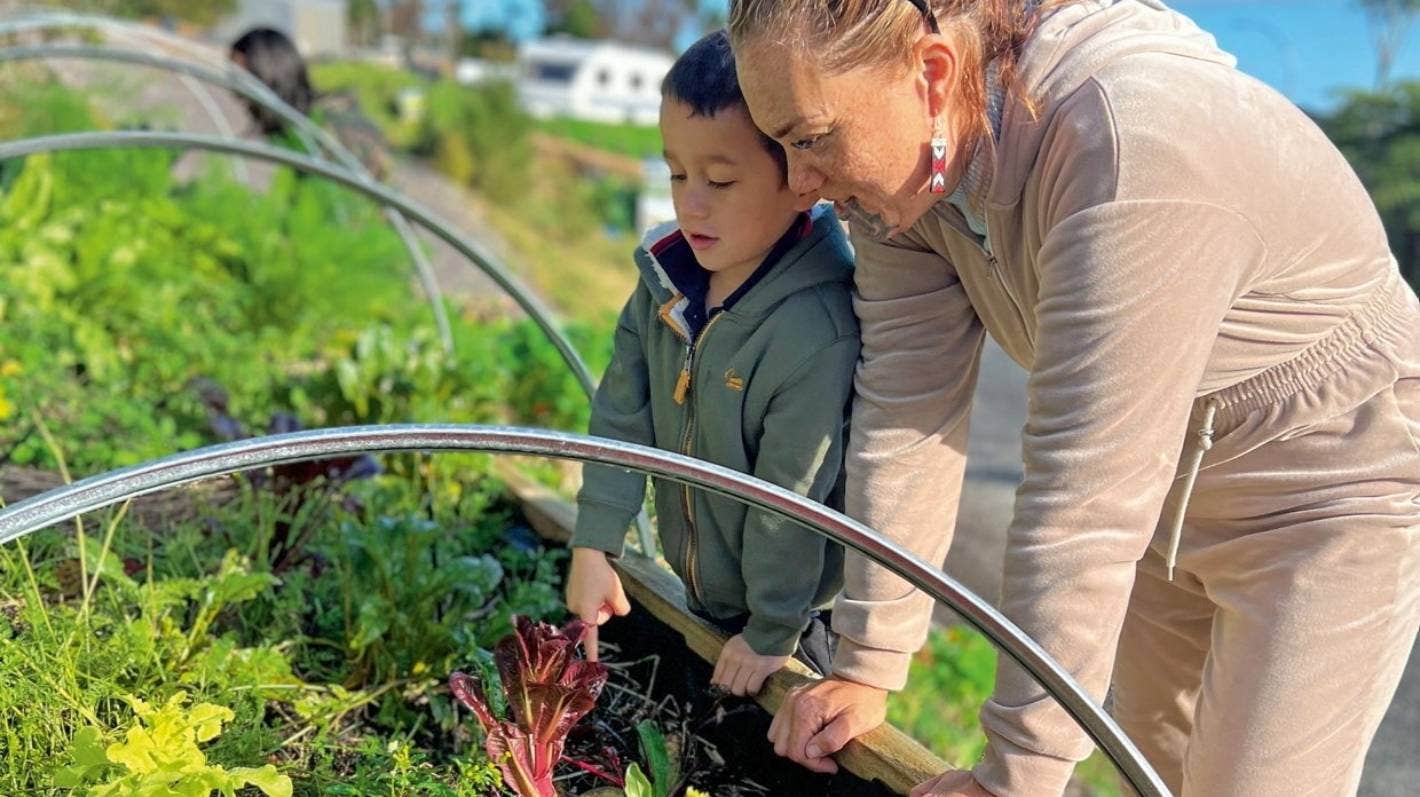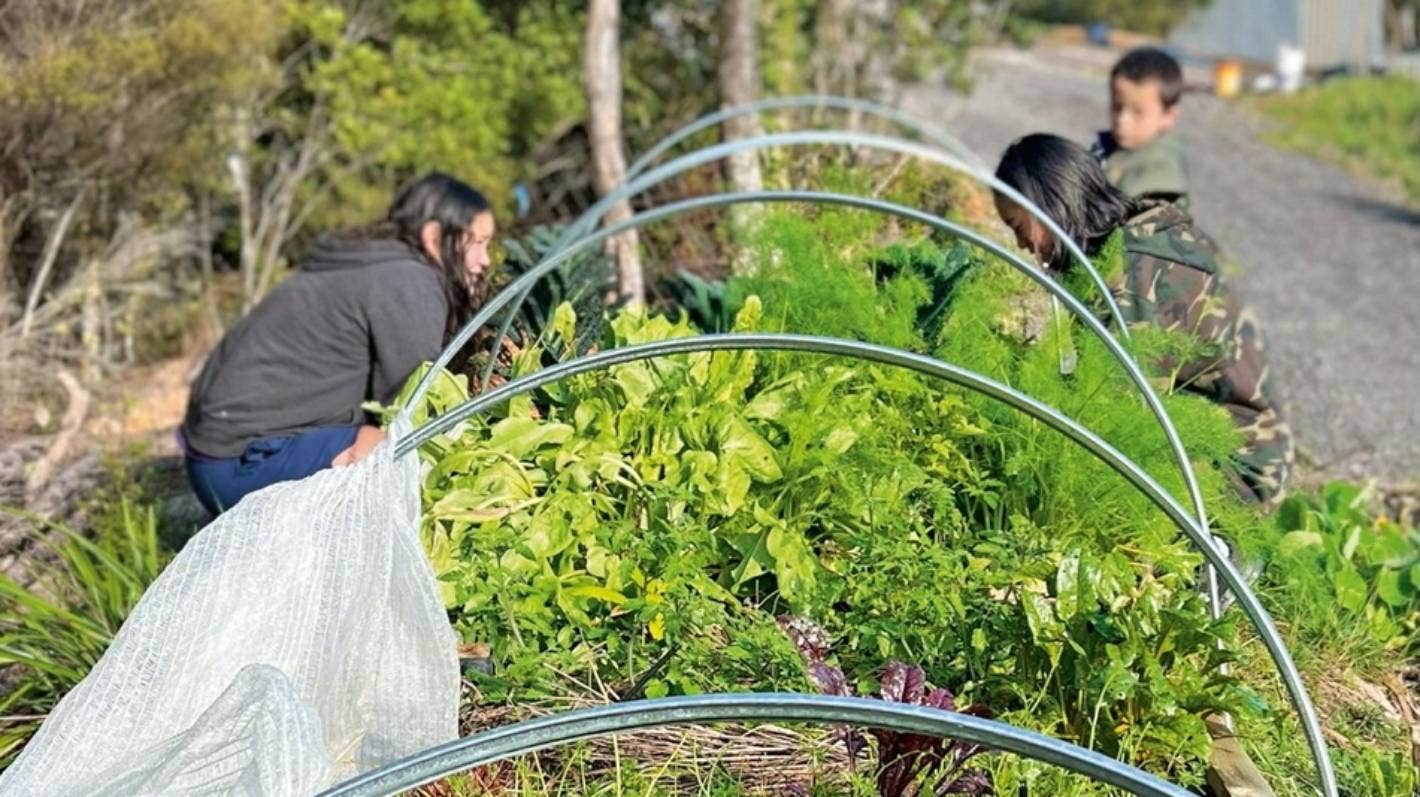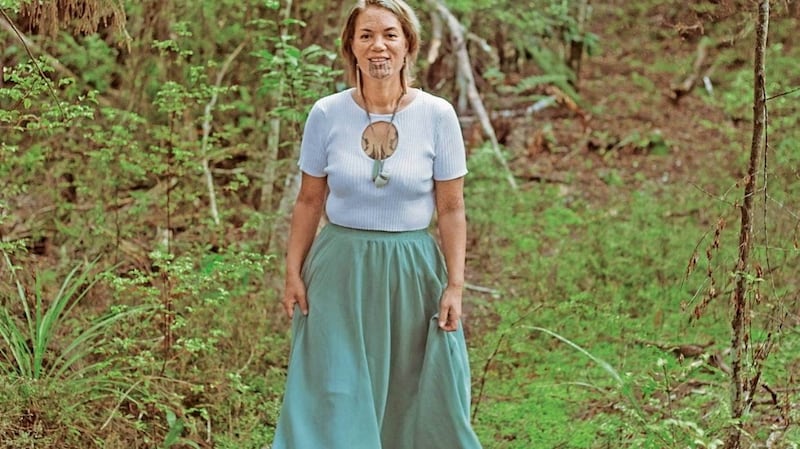Heeni Hoterene is an organic gardener and maramataka expert with a remarkable story, and if you go to her talk at Garden Marlborough next month, you might hear it.
Until then, the short version here is that Hoterene (Ngāti Hine, Ngāpuhi, Ngāti Raukawa ki te Tonga, Ngai Tahu), who hails from the Northland settlement of Opua, lives in an environment shaped and guided by the maramataka. And she is ready to share the knowledge and wisdom derived from this Māori lunar calendar.
The catalyst for her resolve was the diagnosis of Stage 4 cancer three years ago. “The doctors gave me two months to live if I didn’t do chemo,” she says matter-of-factly, recalling that scans showed cancer in her uterus, lymph nodes, spine and stomach. “I went home and I thought and thought. Now I call that time te pō roa, the long night.”
Naturally, her thoughts turned to her children – Karirikura, now 14; Otane, 13; Keteriki, 11; and Ouenuku, 6 – and for their sake, Heeni decided she would not spend the rest of her life in fear of cancer or chemo.

“So I regarded the chemo as rongoā. When I was getting it, I called it in with a karanga. I welcomed it to treat me because I knew that if I rejected it, it wouldn’t work.”
Hoterene also looked to the maramataka to guide her recovery. “My mission was to stay alive, and my strategy was to use the maramataka for my health plan. After all, I am Māori, and the doctors can’t see my hinengaro (consciousness), my ancestors, my guides, my kaitiaki, and what is pono (truth) to me.”
Hoterene had every confidence that the maramataka would help her because it had been the framework for her life for many years. “My husband’s family never left their tribal lands in Ahipara,” she explains. “They never left the gardens and they never left the sea, so they never lost this knowledge. They’ve always grown their food according to their iwi’s traditional maramataka, taking into account their specific natural environment and its influences.”
Hoterene and her husband, environmental activist and Northland community leader Reuben Taipari, have long advocated for living more sustainably, building their own whare uku (rammed earth dwelling) in Ahipara.

Understanding – and using – the maramataka, is part of this kaupapa, she maintains. “I am on a bit of a mission. I want to see people using maramataka to realign with nature. Right action at the right time is what it’s all about,” she says. “Sometimes, people plant because it’s the weekend and they have the free time, but it’s not always the best time in the lunar cycle.
“What is the purpose of gardening? You want to eat food and save money but are you going to plant just any seed or a good seed that will flourish? When you follow the maramataka, you get more benefit from using your time correctly,” she says.
“One of the roles our family is playing is teaching people how to use the maramataka relative to their own environment because we are all in different regions, so we teach people how to evolve and use the calendar to suit their here and now, how to plant and get the best yield, how to break it down and match our actions to each cycle of the moon.”
Hoterene plans all her gardening right across the months as it is also important, she stresses, to actually put in the mahi. “You can have the best environment, but if you’re not actually planting, you’re not going to get kai, are you.”
Heeni Hoterene’s workshops will be held on November 10 (2-4pm) and November 11 (9-11am). Tickets are $65. For more information, visit the Garden Marlborough website.

